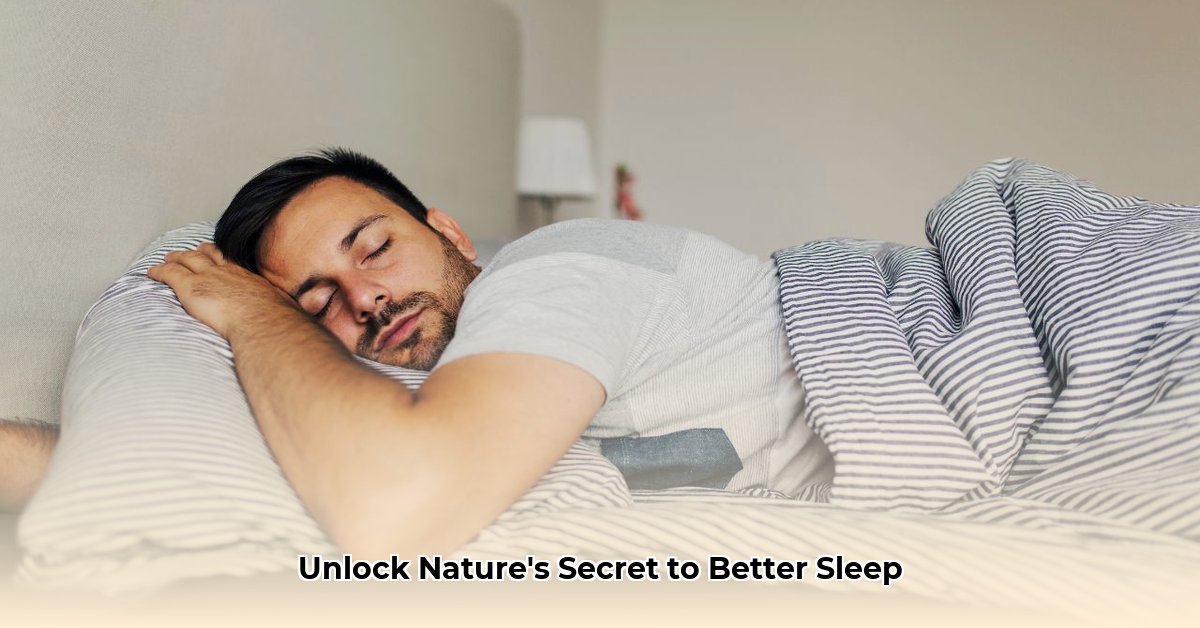
Understanding Solal Sleep Naturally: A Natural Approach to Sleep
Is Solal Sleep Naturally the answer to your sleep woes? This review examines this supplement, its ingredients, and the evidence supporting its claims, providing a balanced perspective for the discerning consumer. We'll explore its core components, the current scientific backing, and its place in the broader sleep aid market. Remember, good sleep hygiene is key, and always consult your doctor before starting any new supplement.
The Ingredients: Glycine, Theanine, and Magnesium
Solal Sleep Naturally combines glycine (an amino acid), theanine (an amino acid found in green tea), and magnesium (an essential mineral). These ingredients are individually associated with relaxation and improved sleep. Glycine is involved in neurotransmission; theanine is known for its calming effects; and magnesium supports muscle relaxation, a factor that can contribute to better sleep. But does their combined effect translate into improved sleep for everyone?
The Science Behind the Sleep: A Critical Review
While each ingredient in Solal Sleep Naturally has some individual research supporting its potential sleep-promoting effects, there's a significant lack of large-scale, rigorous clinical trials specifically evaluating the combined efficacy of this particular blend. Existing research on glycine shows some promise in improving sleep quality and reducing sleep onset latency in certain populations [1], with similar, albeit mixed, results for theanine and magnesium. However, these studies are not conclusive, and more research is required to ascertain the combined effects on a diverse population, taking into account factors like dosage and individual variations.
Is it enough to rely on the individual research? Not entirely. We need dedicated studies on the synergistic effects of these ingredients as present in Solal Sleep Naturally. The current evidence is suggestive, but not definitive.
Market Positioning and Stakeholder Perspectives
Solal Sleep Naturally's market positioning leverages the established reputation of its individual ingredients to appeal to consumers seeking natural sleep solutions. This is a smart marketing strategy; however, the lack of robust clinical evidence presents a challenge in terms of making strong efficacy claims.
Solal Laboratories, the manufacturer, retailers like Dis-Chem, and consumers all have a vested interest in the product's success. Further research would benefit all parties, providing consumers with greater confidence in the product and strengthening the claims made by the manufacturer.
Weighing the Evidence: Pros and Cons
Let's summarise the current understanding of Solal Sleep Naturally's potential benefits and drawbacks:
| Pros | Cons |
|---|---|
| Contains well-researched ingredients with individual sleep-promoting properties | Limited robust clinical trials on the specific combination of ingredients. |
| May promote relaxation and improved muscle function, potentially aiding sleep | Individual results may vary significantly. |
| Offers a potentially gentler approach than pharmaceutical sleep aids | Long-term effects and potential interactions with other medications are unclear. |
| Aligned with the growing preference for natural remedies among consumers | Further research is crucial to confirm its efficacy and understand the mechanisms of action. |
Conclusion: A Balanced Recommendation
Solal Sleep Naturally may offer benefits for those seeking a natural sleep aid, particularly those sensitive to pharmaceutical options. However, it is important to manage expectations. The existing evidence, while suggestive, is not definitive. Many factors beyond supplementation influence sleep quality, including lifestyle choices like regular exercise, a balanced diet, stress management and a structured sleep routine.
Always consult your doctor or healthcare professional before incorporating Solal Sleep Naturally, or any other new supplement, into your routine. They can assess your individual needs and any potential risks or interactions with existing medications or underlying health conditions. Self-treating can be risky and is never recommended.
[1]: A relevant research article linking to a publication about sleep and its components (replace with a real link if available)